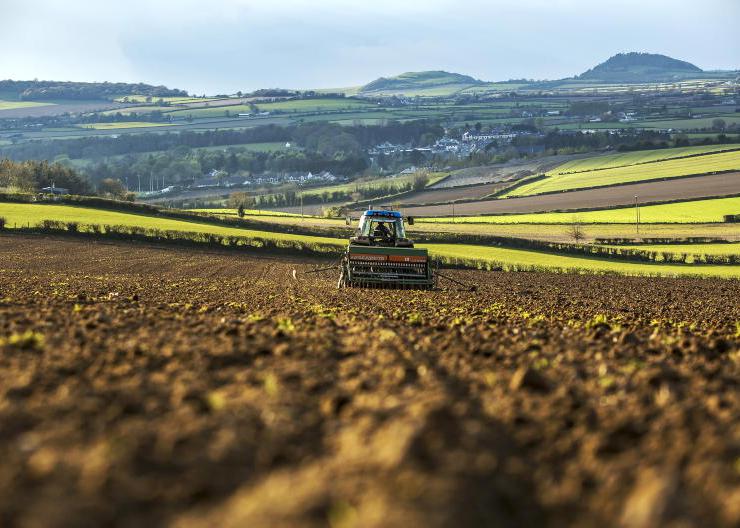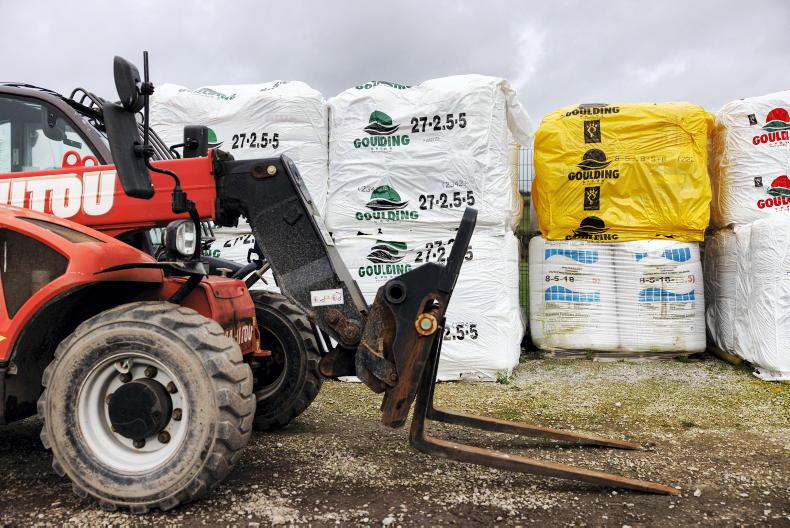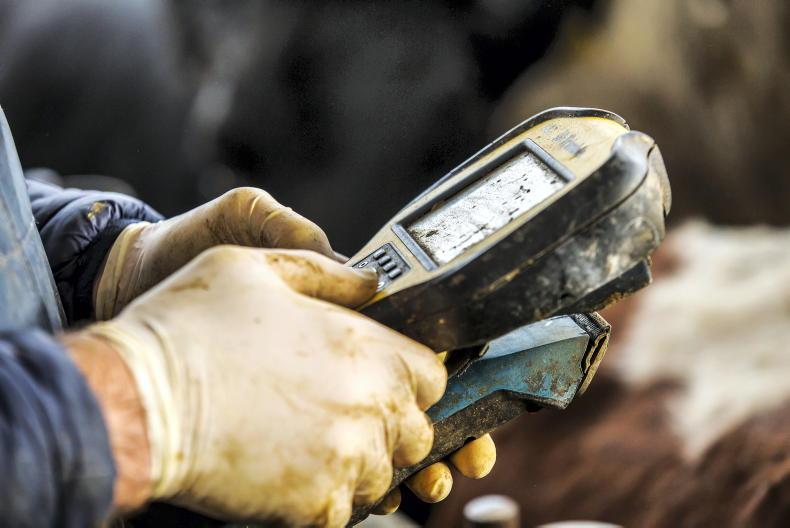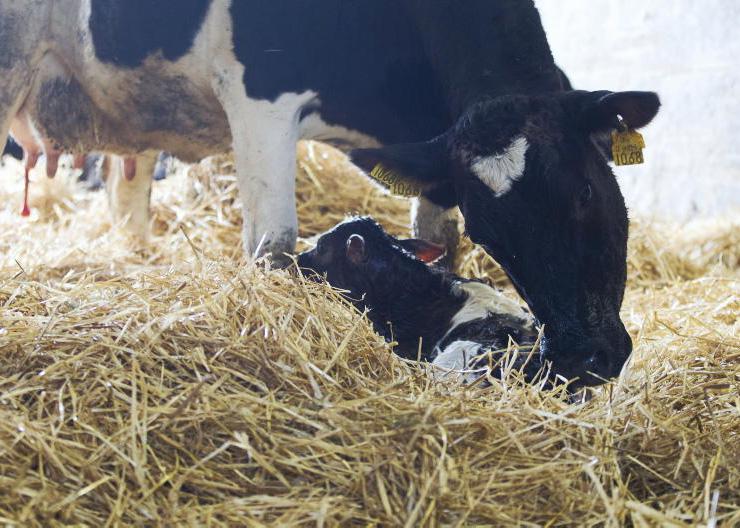The economic survival of independent agri merchants is jeopardised by the current draft of the Government bill that is to establish the fertiliser database and make veterinary prescriptions mandatory for buying wormers, a merchants’ body has said.
The veterinary medicinal products, medicated feed and fertilisers regulation bill will prevent many independent agri merchants from selling wormers, instead favouring sales from vets’ own practices, according to the Independent Licensed Merchant Association (ILMA).
An alternative proposed by merchants would allow the merchant to sit a course to become qualified as a “responsible person” able to prescribe the doses.
The IT systems and administrative burden will also push a lot of smaller merchants out of the fertiliser market from January when the rules planned in the Department of Agriculture’s fertiliser register will require all details of fertiliser and lime sales to be registered on a centralised database.
Issues
“The big issue with the current proposal is the failure to include the responsible person as a prescriber of anti-parasitic veterinary medicines. That’s the crook of where we see that the issue is,” the ILMA’s Terence O’Shea told the joint Oireachtas committee on agriculture.
“The implementation of veterinary medicinal products, medicated feed and fertilisers regulation bill in its current form massively threatens the viability of many agri-retail businesses across the country and, in turn, also threatens the jobs of all the specifically qualified people I have already outlined," added the association's Barry Larkin.
“For example, if the sale of animal health products is taken away from many of the smaller merchants around the country, then those businesses will become unviable and many will close their doors, leaving farmers to look further afield for the services and advice that they require."
Reduce competition
The Irish Pharmacy Union, which represents over 300 sellers of veterinary medicines, told the committee that it expects the bill to reduce competition in the sector, lower the availability of product and increase costs for animal owners.
The union stated that its members had witnessed a “seismic downturn” in sales of dry cow tubes since 28 January this year when the products could only be sold after a prescription had been issued by a vet and warned of a similar trajectory being followed by wormer products.
Database IT issues
The two options the Department has devised for tracking fertiliser movements from sales yards are to either have the merchant input sales data transaction by transaction, which would be “laborious and tedious”, or to link merchants’ IT systems with the Department’s.
Both options have the potential to add administrative burdens on those selling farm inputs, with the latter forcing smaller merchants away from fertiliser sales, the merchants’ group said.
“Some of these businesses still use pen and paper for the purpose of recording sales,” Larkin added.
Border loophole
The ILMA also raised concerns cited to the committee last week by umbrella co-op group the Irish Co-operative Organisation Society (ICOS) in relation to fertiliser sales being lost to the North with the introduction of the fertiliser database.
It would not be just farmers in border counties who could look northwards when buying fertiliser.
“This has had a tendency to happen across the border counties only. However, with commercialisation, this has extended far further,” Larkin added.
“Whereby, if a farmer in Cork wants a load of fertiliser for NI, all they have to do is make a phone call and the fertiliser will land into the yard within days.
“It would be incredibly naive to think that farmers who are pushing the boundaries will not use this method to avoid recording some of their fertiliser purchases,” he said.
Read more
Cross-border trade ‘black hole’ in fertiliser register plans
Farmers buying fertiliser from North to face dual database registration
Fines of up €5,000 if farmers don't comply with fertiliser database
Fertiliser database threatens merchants in border counties
The economic survival of independent agri merchants is jeopardised by the current draft of the Government bill that is to establish the fertiliser database and make veterinary prescriptions mandatory for buying wormers, a merchants’ body has said.
The veterinary medicinal products, medicated feed and fertilisers regulation bill will prevent many independent agri merchants from selling wormers, instead favouring sales from vets’ own practices, according to the Independent Licensed Merchant Association (ILMA).
An alternative proposed by merchants would allow the merchant to sit a course to become qualified as a “responsible person” able to prescribe the doses.
The IT systems and administrative burden will also push a lot of smaller merchants out of the fertiliser market from January when the rules planned in the Department of Agriculture’s fertiliser register will require all details of fertiliser and lime sales to be registered on a centralised database.
Issues
“The big issue with the current proposal is the failure to include the responsible person as a prescriber of anti-parasitic veterinary medicines. That’s the crook of where we see that the issue is,” the ILMA’s Terence O’Shea told the joint Oireachtas committee on agriculture.
“The implementation of veterinary medicinal products, medicated feed and fertilisers regulation bill in its current form massively threatens the viability of many agri-retail businesses across the country and, in turn, also threatens the jobs of all the specifically qualified people I have already outlined," added the association's Barry Larkin.
“For example, if the sale of animal health products is taken away from many of the smaller merchants around the country, then those businesses will become unviable and many will close their doors, leaving farmers to look further afield for the services and advice that they require."
Reduce competition
The Irish Pharmacy Union, which represents over 300 sellers of veterinary medicines, told the committee that it expects the bill to reduce competition in the sector, lower the availability of product and increase costs for animal owners.
The union stated that its members had witnessed a “seismic downturn” in sales of dry cow tubes since 28 January this year when the products could only be sold after a prescription had been issued by a vet and warned of a similar trajectory being followed by wormer products.
Database IT issues
The two options the Department has devised for tracking fertiliser movements from sales yards are to either have the merchant input sales data transaction by transaction, which would be “laborious and tedious”, or to link merchants’ IT systems with the Department’s.
Both options have the potential to add administrative burdens on those selling farm inputs, with the latter forcing smaller merchants away from fertiliser sales, the merchants’ group said.
“Some of these businesses still use pen and paper for the purpose of recording sales,” Larkin added.
Border loophole
The ILMA also raised concerns cited to the committee last week by umbrella co-op group the Irish Co-operative Organisation Society (ICOS) in relation to fertiliser sales being lost to the North with the introduction of the fertiliser database.
It would not be just farmers in border counties who could look northwards when buying fertiliser.
“This has had a tendency to happen across the border counties only. However, with commercialisation, this has extended far further,” Larkin added.
“Whereby, if a farmer in Cork wants a load of fertiliser for NI, all they have to do is make a phone call and the fertiliser will land into the yard within days.
“It would be incredibly naive to think that farmers who are pushing the boundaries will not use this method to avoid recording some of their fertiliser purchases,” he said.
Read more
Cross-border trade ‘black hole’ in fertiliser register plans
Farmers buying fertiliser from North to face dual database registration
Fines of up €5,000 if farmers don't comply with fertiliser database
Fertiliser database threatens merchants in border counties










SHARING OPTIONS